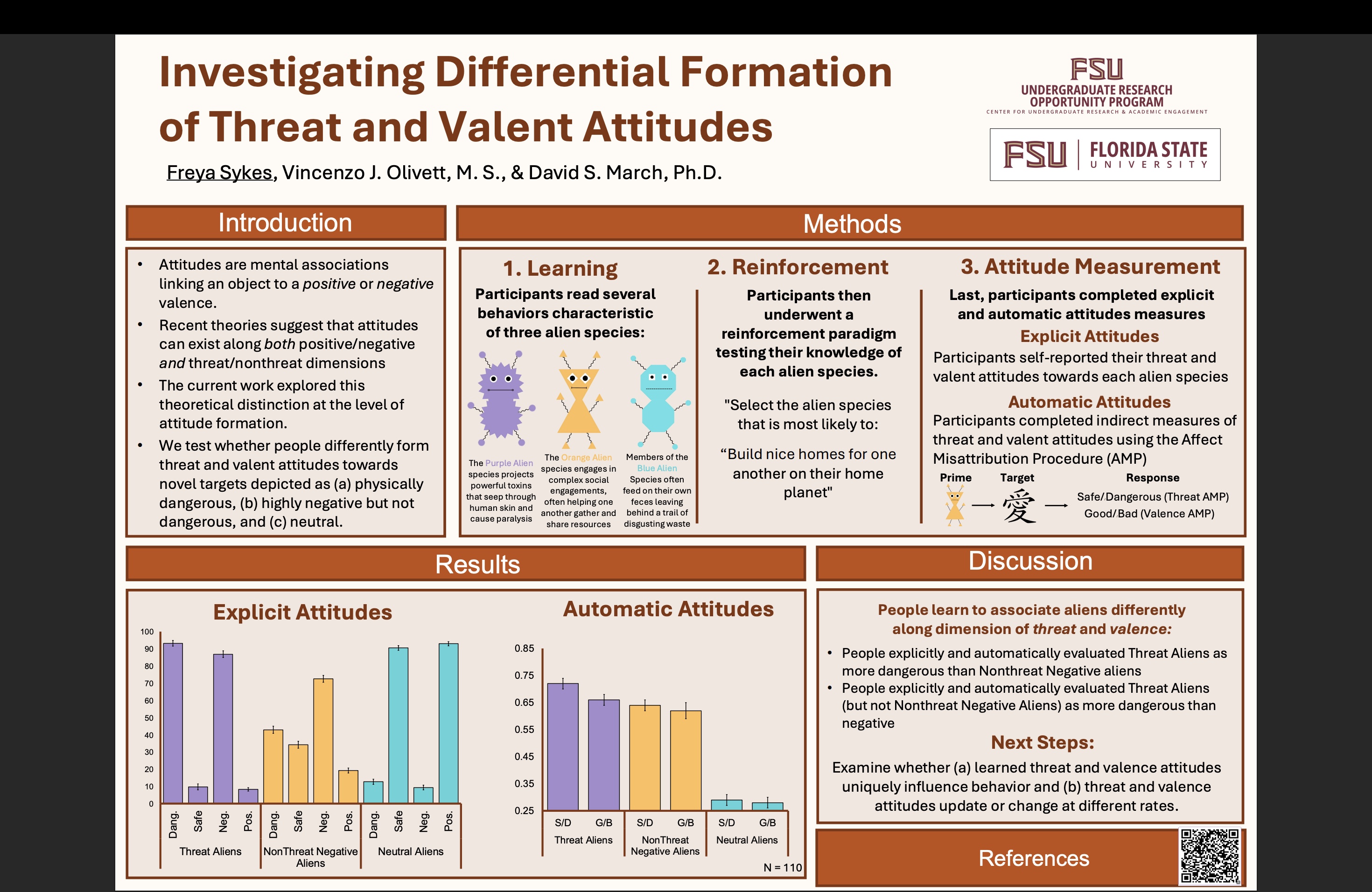Research Symposium
25th annual Undergraduate Research Symposium, April 1, 2025
Freya Sykes Poster Session 4: 3:00 pm - 4:00 pm/ Poster #76
BIO
Freya Sykes is a second-year psychology major from Fort Lauderdale, Florida. Freya is currently interested in the area of social psychology, particularly in understanding how social environments, relationships, and group dynamics influence individual behaviors toward others and mental well-being. In the future, she would like to pursue a career working with children in the school system and helping them grow in their mental health.
Investigating Differential Formation of Threat and Valent Attitudes
Authors: Freya Sykes, Vincenzo OlivettStudent Major: Psychology
Mentor: Vincenzo Olivett
Mentor's Department: Psychology Mentor's College: College of Arts and Sciences Co-Presenters:
Abstract
Attitudes influence how we perceive and respond to the world. Traditionally, attitudes are conceptualized as associations linking an object to an evaluation existing along a single valence dimension (positive to negative). However, emerging research suggests that attitudes can form along multiple, independent dimensions, including threat (nonthreat to threat). The present study investigates whether individuals can simultaneously learn attitudes along both valence and threat dimensions. Participants learned about three novel attitude objects (fictional alien species) through by reading behavioral descriptions in a reinforcement paradigm. One species behaved neutrally, another behaved in a negative but nonthreatening (e.g., disgusting) manner, and the third behaved in a physically threatening manner. After exposure, both implicit and explicit attitudes toward each species were measured along valence and threat dimensions. If attitudes can form independently along these dimensions, this would challenge traditional models that prioritize valence as the primary evaluative structure. By exploring how people differentially associate novel objects with multiple evaluative dimensions, this research may provide insights into the flexibility of attitude formation and the broader psychological processes underlying social evaluation. These findings could have implications for understanding how threat-based attitudes develop in real-world contexts.
Keywords: Threat and Valent Attitudes


